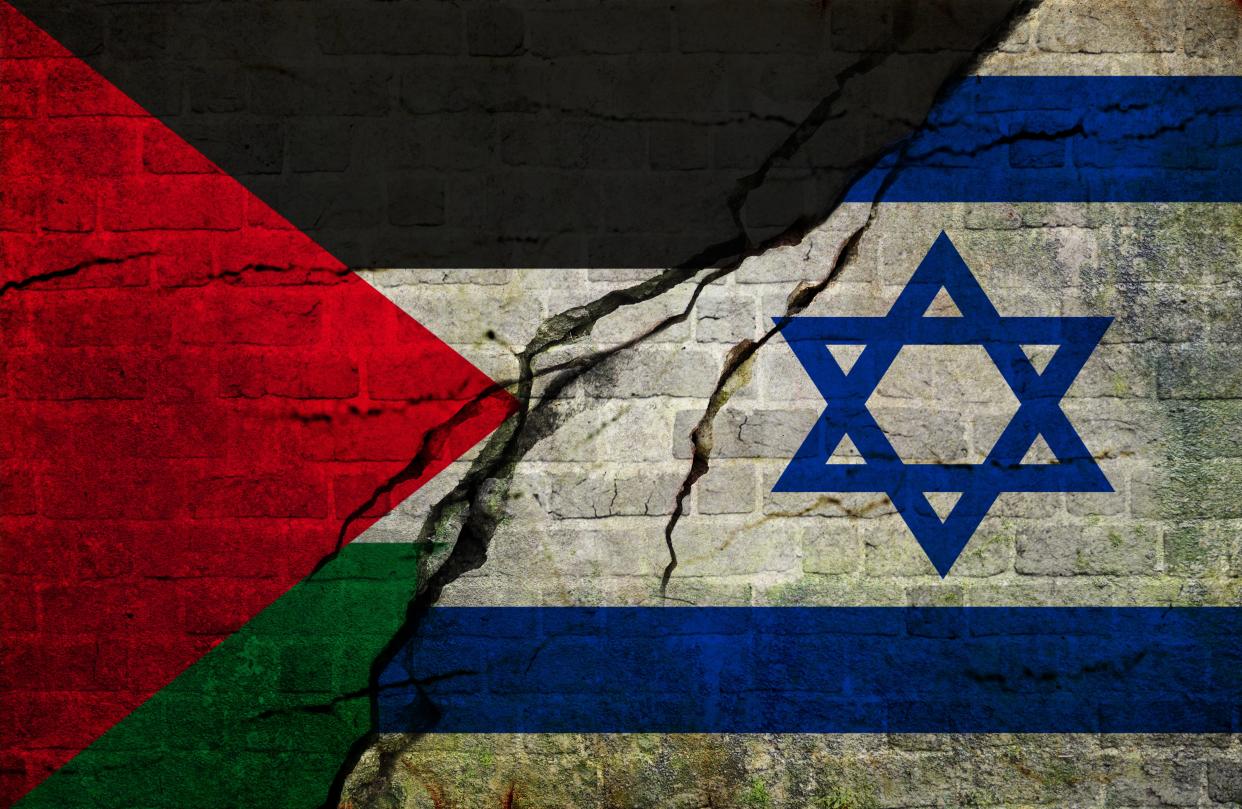Historian: Israeli, Palestinian struggle is political, rooted in modern nationalism

Many Oklahomans are puzzled and dismayed by the recent horrific attack in Israel and the ongoing bombardment of Gaza. Why would Hamas engage in such wanton violence? And why has Israel responded in kind? More fundamentally, what are they fighting about? If this conflict is to be resolved peacefully, it must be understood historically.
Contrary to popular belief, the struggle between Israelis and Palestinians is not religious in nature or timeless. It is political, rooted in the thoroughly modern idea of nationalism. Israelis and Palestinians each want to build a state on the same land. Israelis assert ancestral ties to the land based on biblical history until at least the Roman era. Palestinians claim a continuous presence in that same land for the last two millennia, if not longer.
However, it wasn’t until the 1880s that Zionism encouraged European Jews to form a state in what was then the Ottoman Empire. During World War I, Britain pledged to support a Jewish homeland provided that Zionists did not violate the rights of the Palestinian majority. Waves of migrants arrived from Europe even as Nazi Germany exterminated 6 million Jews in the Holocaust. Meanwhile, Britain thwarted the development of Palestinian nationalism.
Zionists created the State of Israel in 1948 and expelled many Palestinians in the process. Egypt and Jordan attacked Israel not only to protect Palestinian rights but also to seize Palestinian territory. When Israel conquered the West Bank and Gaza Strip in 1967, it became responsible for the welfare of most Palestinians, who have languished under martial law ever since. Israel also began settling its citizens in the West Bank and Gaza Strip — a war crime according to the Geneva Convention. Palestinian leaders endorsed terrorism until the First Intifada (1987-91), when most factions renounced violence and recognized Israel. Newcomer Hamas, however, vowed to resist the continued military occupation.
Egypt and Jordan eventually made peace with Israel. In 1994, Israelis agreed to the creation of the Palestinian Authority, an interim government for the West Bank and Gaza, but opponents of the Oslo Accords — including Prime Minister Benjamin Netanyahu and Hamas’ leaders — sabotaged the final stages of the peace process by stoking violence during the Second Intifada. By the early 2000s, Israel began constructing a massive wall around Gaza and the West Bank to deter suicide bombers. The International Court of Justice found that Israel intended its route to annex swaths of Palestinian territory.
Today, more than 2 million Palestinians live in densely populated Gaza. Israel withdrew its settlers from the area in 2005 but refused to accept that Hamas won the Palestinian Authority’s 2006 elections. Civil war erupted between Palestinians, and Hamas assumed de facto government of Gaza in 2007. Israel blockaded the territory by land, sea and air. For 16 years, Palestinians in Gaza have been dependent on Israel for deliveries of electricity, fuel and food. The restriction of these imports in times of conflict constitutes collective punishment, a violation of international law.
Israel has invaded Gaza several times over the past two decades, usually after Hamas fired unguided rockets to protest Israeli abuses of Palestinian sovereignty. These wars tend to inflict massive civilian casualties but accomplish little else. The two sides will not negotiate, although they often tacitly cooperate.
When I visited Tel Aviv in 2019, Israeli voters were preparing to choose a prime minister. An Israeli political scientist freely admitted to me that ending the conflict was not on the platform of any major candidate. It seemed then that most Israelis were content with the sustained siege of Gaza. By contrast, Palestinians in Gaza gathered at the wall every Friday for weeks in 2018 to peacefully protest. They met with live fire from Israel.
The tragic events of recent days must be understood in this context. History demonstrates that Israel will not eliminate Hamas by invading Gaza. That strategy failed in 2008, 2012, 2014 and 2021. Nor will further bloodshed resolve the broader Israeli-Palestinian conflict. Rather, history shows that groups like Hamas will renounce violence as Israel recognizes the legitimate political aspirations of the Palestinian people and works toward their realization.

Andrew D. Magnusson is an associate professor of Middle Eastern history at the University of Central Oklahoma.
This article originally appeared on Oklahoman: Israel-Hamas war seen through a historical lens

